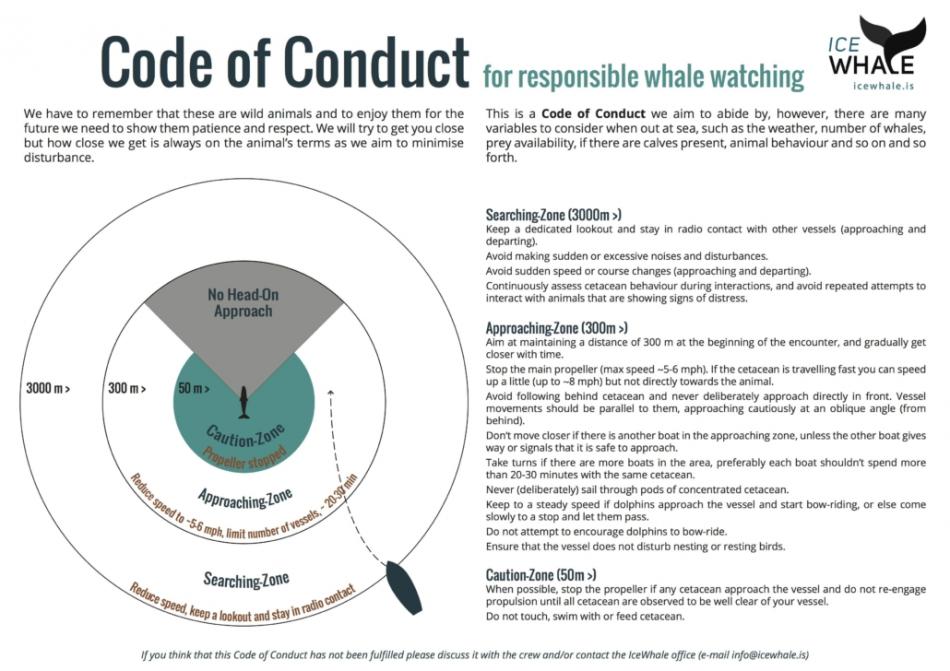WHALE WATCHING -EVER GROWING POPULARITY
Since the mid 1990s whale watching in Icelandic waters has grown considerably and today it is one of the most popular tourist activities in Iceland. With this increased boat traffic concerns about negative impacts on cetaceans has arisen, as much in Iceland as in other whale watching areas around the world.
THE IMPACT OF WHALE WATCHING IN ICELAND
The impacts of whale watching are considered to result from both the presence of the vessels and the noise that they create, which distracts the whales from activities like foraging, feeding, socializing and breeding, and reduces their ability to detect their prey, communicate, and navigate.
STAYING WHALE FRIENDLY
From the start our emphasis has been on whale friendly whale watching. We began by following IceWhales' (The Icelandic Whale Watching Association) guidelines but soon discovered that we wanted to take the matter further. It is our belief that, whether our presence has a negative effect or not, following these guidelines will at the very least result in no change to the whale watching. However if our precence does have an effect, then following these guidelines is likely to result in better encounters with the wildlife, happier passengers and long-term sustainability for whale watching.
WHALE WATCHING GUIDELINES
With great help from Megan Whittaker, head guide and marine biologist, we have set ourselves guidelines for responsible whale watching that our captains, engineers, guides and other crew members follow with great respect. We educate our guests about the guidelines whenever possible to give them a better understanding of our behaviour and approach at sea.





